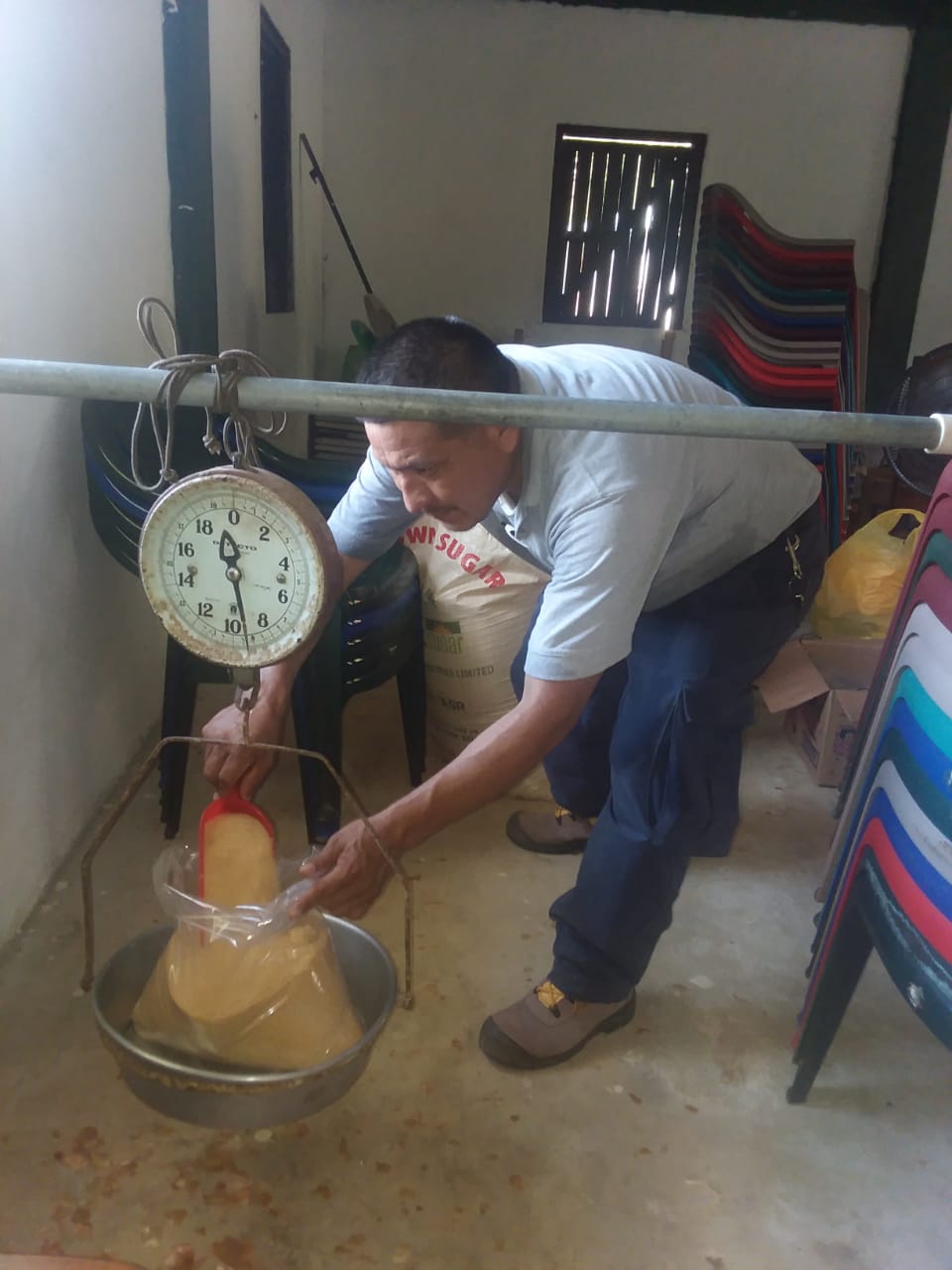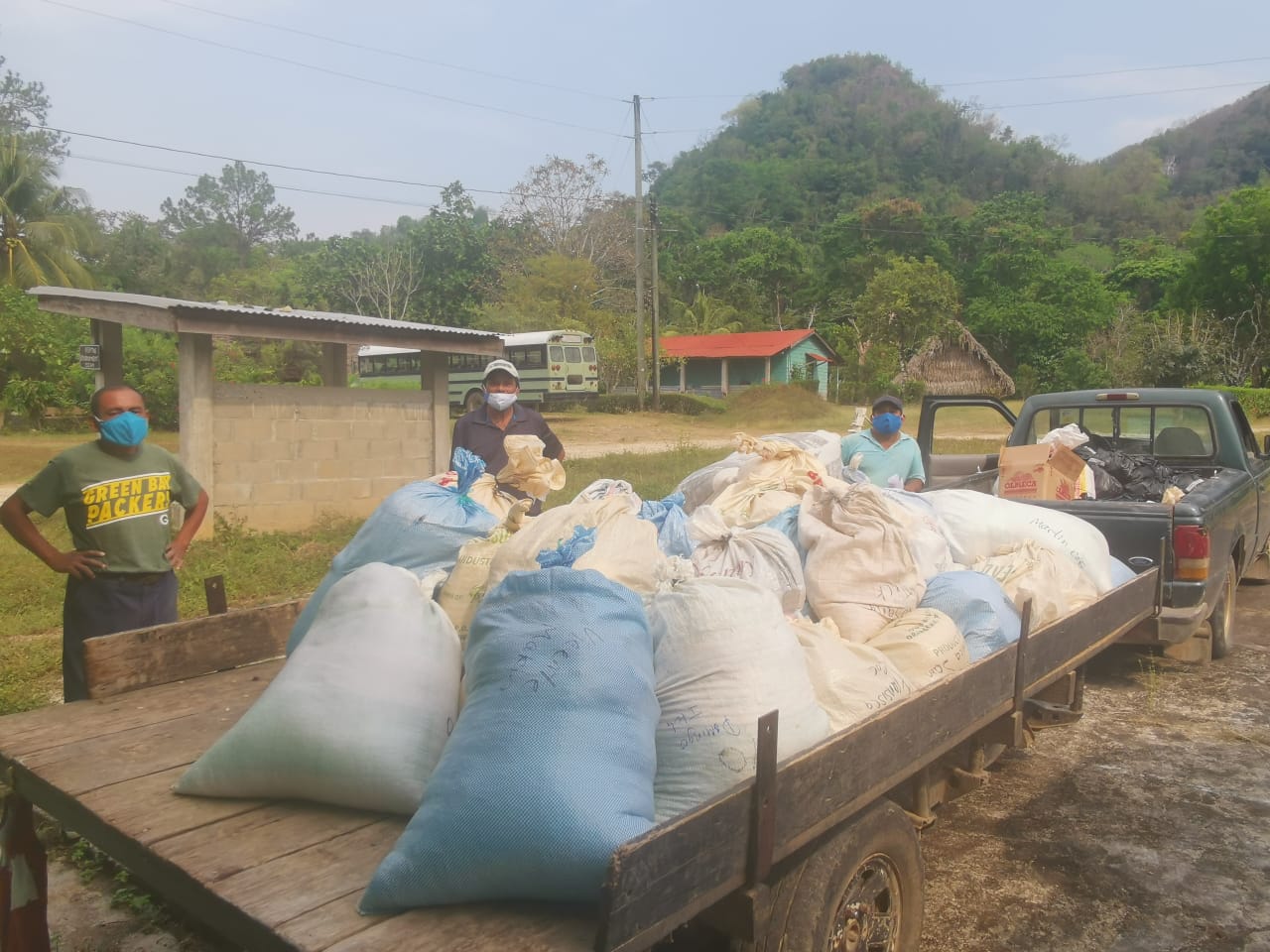2020-08-21
Written by Cristina Coc
Belize, like much of the Americas, is home to vibrant Indigenous Peoples and vital nature, where communities continue to depend on the land and its bounty for their survival.
The Mopan and Q’eqchi people have long lived in small, isolated villages in the lush rainforests of southern Belize, where the results of countless national development projects to tackle poverty are barely visible. Our people still turn to the land for everything from farming, gathering wild uncultivated foods, medicine, firewood, hunting and building materials. We have never unlearnt our long-practised self-sufficiency, and the challenges we have faced have helped us to adapt again and again to a rapidly changing world. That is why our indigenous culture and identity have survived until today.
Despite this, nothing prepares a community for the spread of a deadly virus like Coronavirus. Bitter past experiences have taught the Maya that if it reached them, they would find themselves alone and abandoned to face the disease. For some villages the nearest medical centre is only accessible after 2 hours walking, and another hour by bus, but with public transportation shut down, these health centres are now entirely out of reach.
"For some villages the nearest medical centre is only accessible after 2 hours walking, and another hour by bus, but with public transportation shut down, these health centres are now entirely out of reach."
Maya people are subsistence farmers, producing surplus corn and beans to be sold across the border to Guatemala. Now restrictions mean they must hold on to their crops, losing what little cash flow they had to purchase things they cannot themselves produce. They hear over and over radio announcements telling them to wash their hands thoroughly with soap, but how without selling their surplus grain, can they purchase soap?
Throughout history, when the Maya people have been threatened, we have stuck together, and supported each other. This time is no different: The Julian Cho Society (JCS), Maya Leaders Alliance (MLA) and the Toledo Alcaldes Association (TAA), representative institutions of the Maya of southern Belize, felt we needed to search for practical solutions of our own to the challenges brought by COVID-19.

We have seen many of our people return from the islands where they once worked in tourism – but with visitors staying away, they are coming home with no job, no income, no food, no farms. After consultations with traditional leaders, we felt it prudent to buy excess grains from our farmers, providing some economic relief. This grain has then been sent to families who need food to survive until they are able to bring in a harvest of their own.
Pandemics of course create substantial threats to the health of the vulnerable indigenous populations, who even in normal times see very little support or understanding of their reality from state structures, where national restrictions are applied with no consideration for the diverse context and cultures of indigenous people, as they struggle to survive.
We have lately seen another example of this, where tight restrictions and measures are already posing a severe threat to Maya food security: the disease struck during the dry season, when Maya farmers plant their crops according to the Milpa system, based on ancient agricultural methods which have been practiced for centuries and have not only ensured the survival of the Maya people, but also the continued fertility of our lands. The Milpa system of farming relies on planting complementary crops that do not deplete the soil, but it also requires rotation, with land periodically cleared and burnt, usually in mid-May, before being planted as soon as the first rains come. It is a complex process, needing careful observation and assessment, so the burning is neither too early nor too late before the rains.

But with uncontrolled fires raging this season, the Ministry of Fisheries, Forestry and Environment passed a law banning all fires and open burning except in the largest sugar cane plantations. No consideration was given to the Maya people and their needs, nor the risks to their food security, already deeply threatened by the spread of COVID-19. This is especially true given the fact that the food relief program being offered by the State requires that the applications be made online. This is a non-option for the Maya, who still remain without electricity and other basic infrastructure in their remote communities. The inequality we experience daily, becomes even more visible during these times. Through our intense dialogue with the authorities, the JCS, MLA and TAA were able to have the restrictions lifted in time for most of farmers to burn their Milpas, giving them a chance of providing for their families in the challenging months ahead. The resilience of our communities is deep. Still, we know that we are facing a huge storm, and we are facing it mostly alone.
Cristina Coc is Executive Director of the Julian Cho Society (JCS), an organisation which has worked tirelessly for decades to advance tenure security and rights recognition for Maya communities in the Toledo region, in southern Belize. Along with the Maya Leaders Alliance (MLA) and the Toledo Alcaldes Association (TAA), JCS are partnering with the Tenure Facility to support the implementation of an historic victory in the Caribbean Court of Justice, which saw Maya land rights recognised after decades of marginalisation and encroachment. Still, Maya communities remain some of the most impoverished and vulnerable in Belize.
Other Blog Posts
Categories: